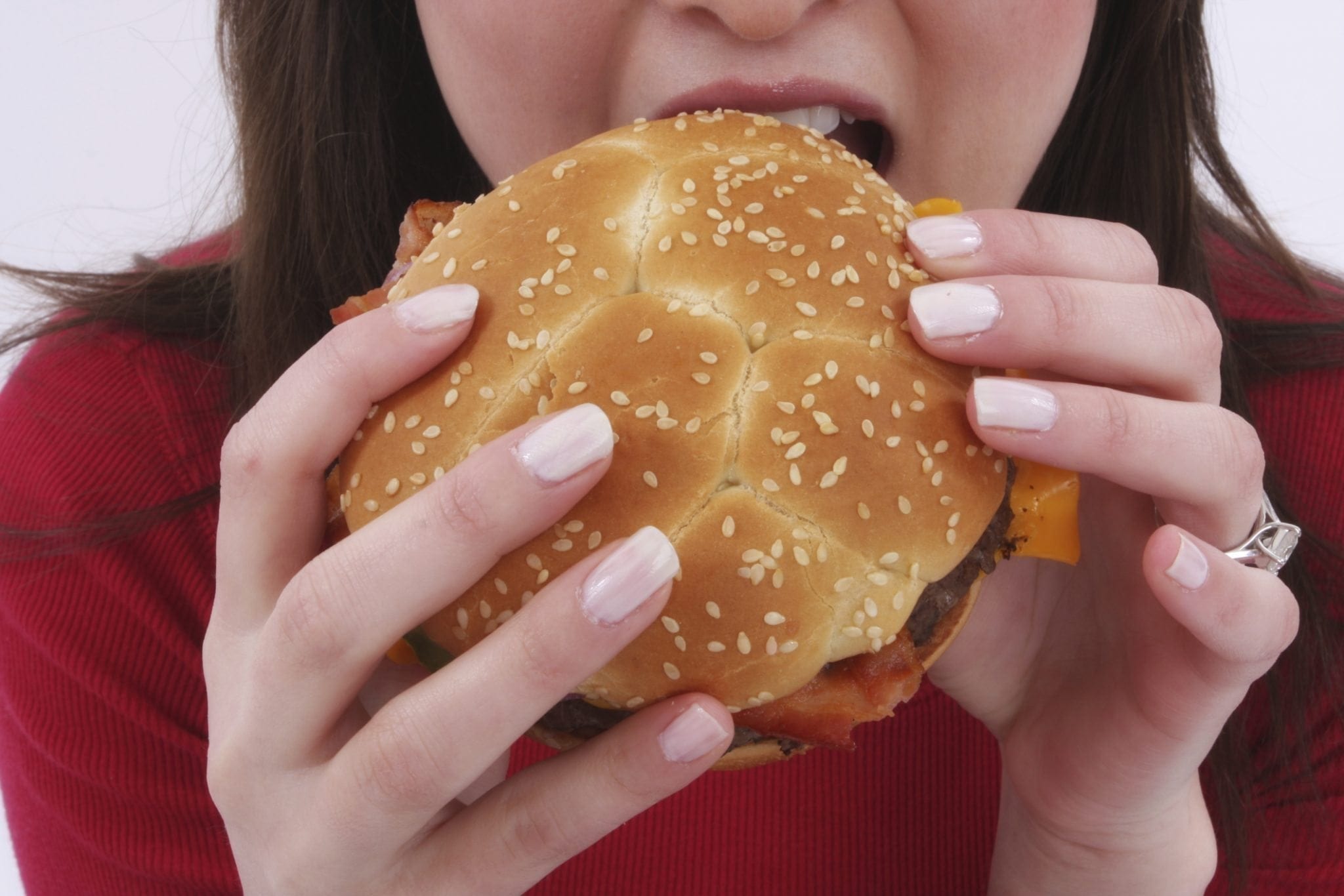As a culture, we tend to turn toward “comfort food” staples during times of high stress, but that post-breakup mac n’ cheese binge may be more damaging to your waistline than previously thought, according to a new study from Ohio State University.
Researchers from OSU’s Wexner Medical Center posed stress-related questions to 58 women, asking them about any and all events (relationship issues, kid drama, work problems, and so on) that may have caused them serious anxiety the previous day. Afterward, they served up a high-calorie, high-fat meal of biscuits and gravy, eggs, and turkey sausage, topping out at 930 calories and 60 grams of fat. Next the researchers analyzed all the data to see how the participants’ metabolisms responded to the meal, measuring levels of inhaled and exhaled oxygen and carbon dioxide, blood sugar, cholesterol, insulin, and the stress hormone cortisol. They found that the women who had undergone stressors the previous day had higher insulin levels, which slowed their bodies’ ability to burn fat. On average, they burned about 104 calories less than the stress-free ladies.
So, unlike previous knowledge, it’s not just the fatty foods that cause weight gain after breakups, job losses, and problems with the kids, but also our metabolism slowing to a crawl. The team at OSU predicts that enough high-stress days, coupled with our tendency to reach for comfort foods afterward, could result in 11 pounds of extra weight per year.
What to do? NYC-based dietician Jackie London, M.S., R.D.N. explains you can offset the issue with smart choices. “Try to stay consistent, as much as possible, with meals during more high-stress situations,” says London. Here is her simple three-step plan:
1. Eat small, eat often “Eat every two or three hours, to stave off the binge effect that comes with skipping meals,” says London.
2. Snack smart “Make sure you’re filling up on high-fiber, lean-protein-based snacks and meals, so that you feel satiated without overdoing it,” she says.
3. Stay active “If you know it’s your tendency to overeat when you’re stressed, find other activities to take your mind off of the task at hand so you can avoid reaching for that Big Mac when you’re on deadline at work,” says London. She suggests treating yourself to a movie, enjoying a walk outside for a half hour, or hitting the gym to take your mind off the issue at hand. “Then, get back to work!” says London.
Are you able to avoid comfort foods when you’re stressed out? What helps you unwind? Share your tips in the comments below!




